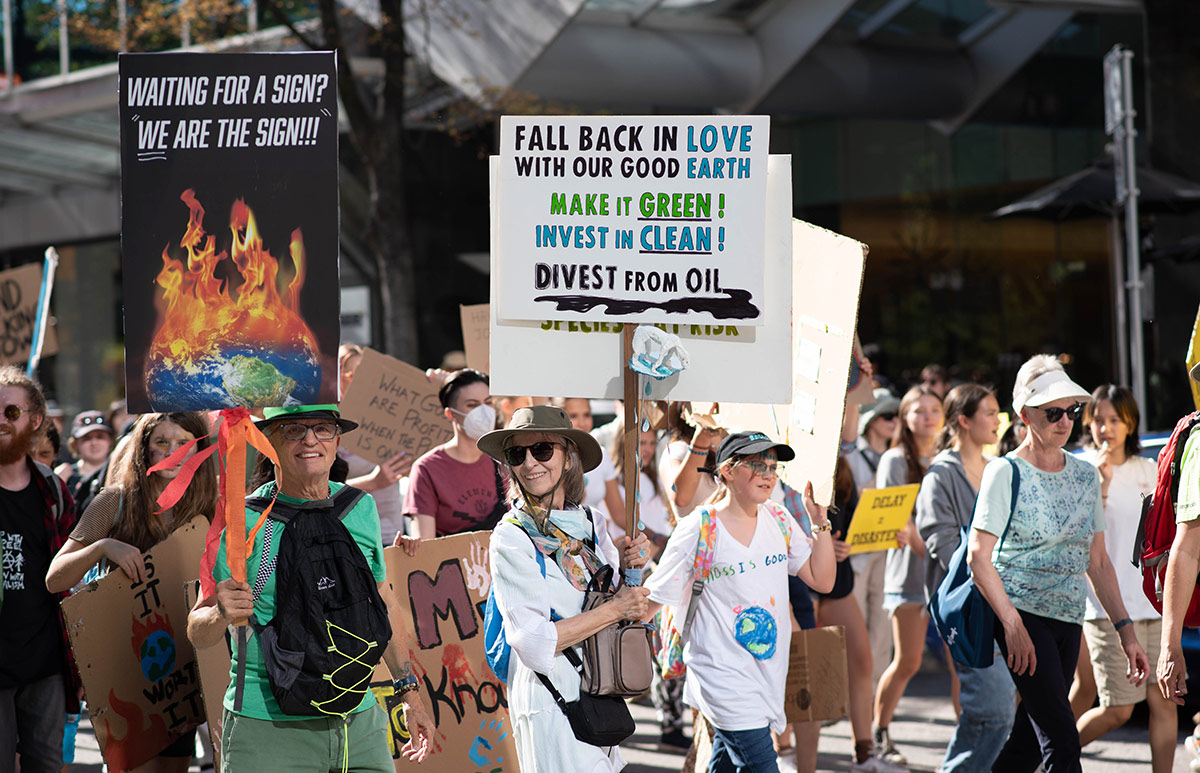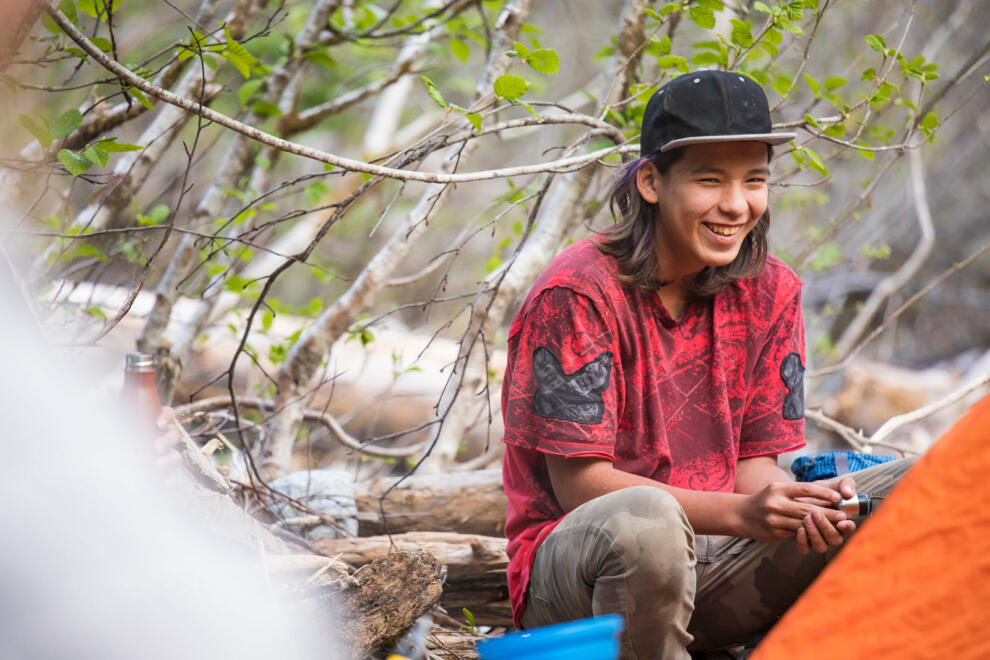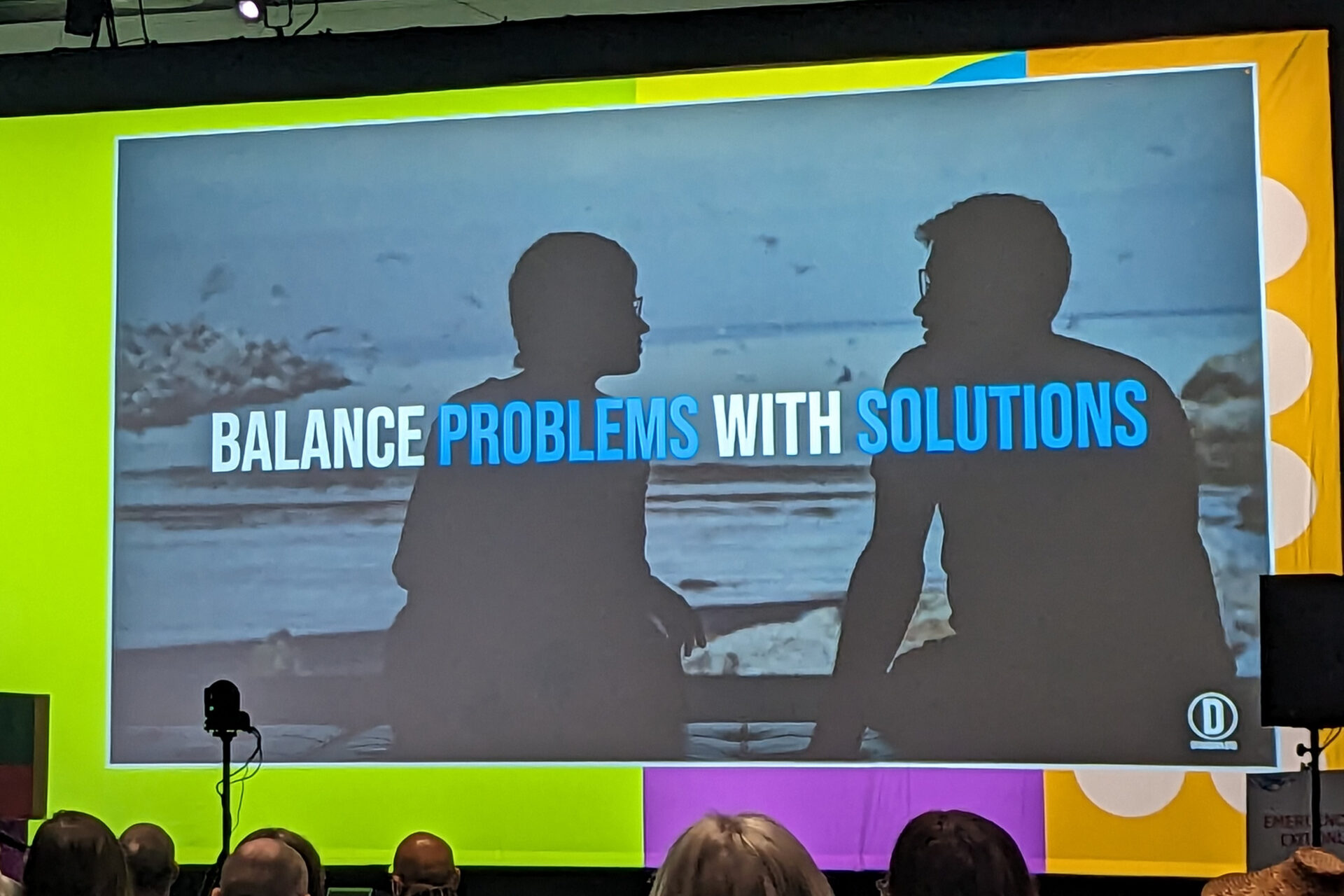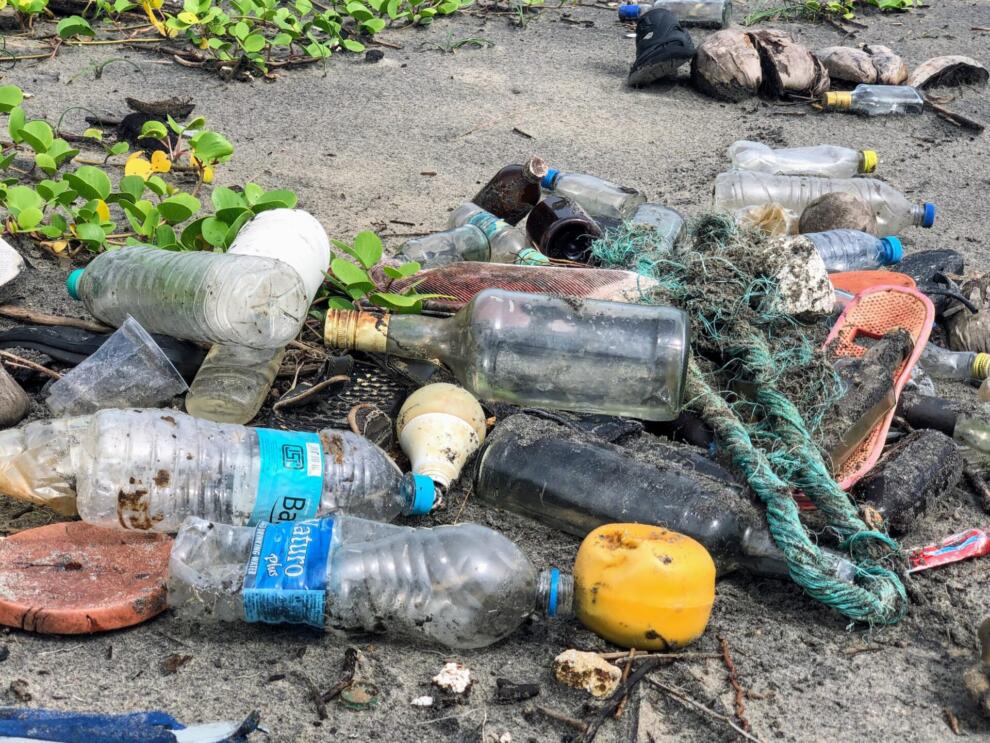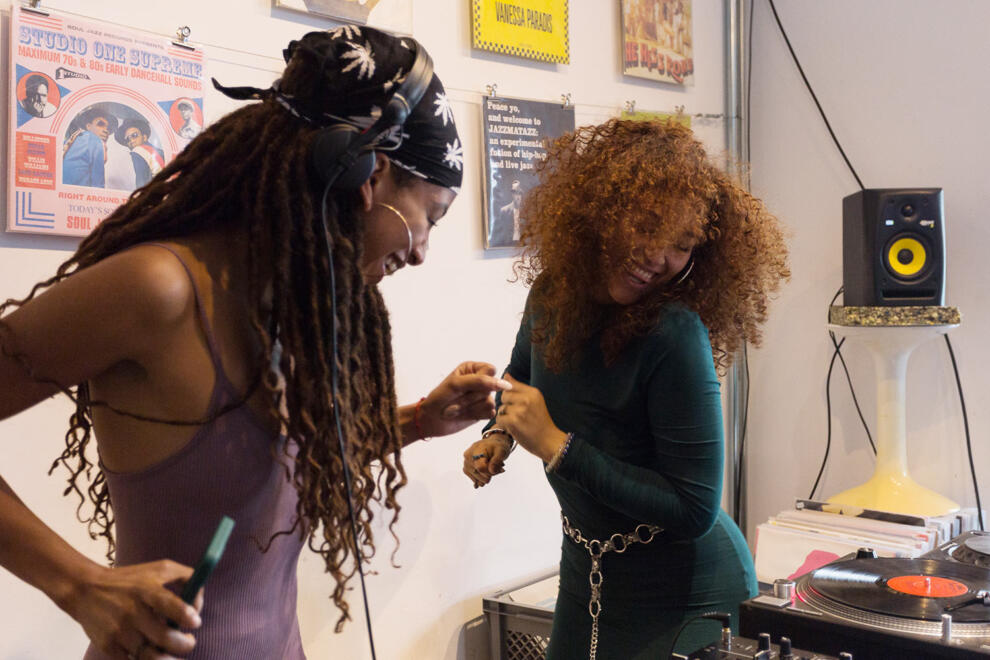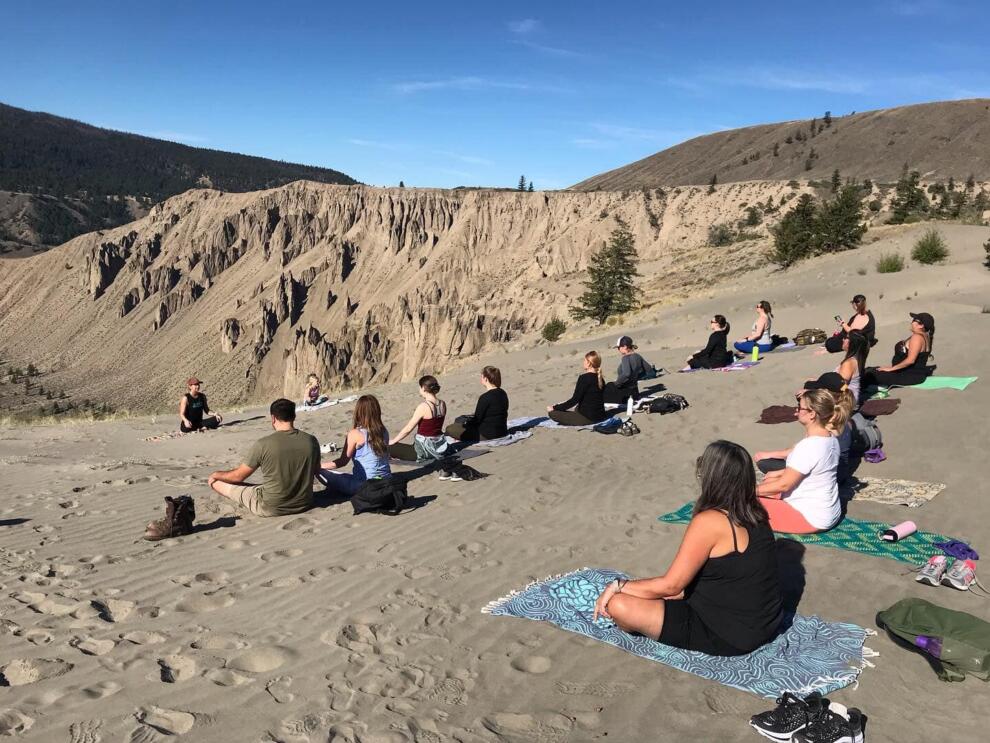Marching for Climate Change and those who will Inherit the Earth
Main photo by Amy Chui. All photographs from 2023 Climate Strike.
On the West Coast of Canada, smokey summers are becoming the norm as wildfires rage every year at an increasingly alarming rate. Wildfires, heat waves and floods are impacting communities and as a result, 74 per cent of British Columbians want their government to do more on climate change. On Friday September 20th, families, students, teachers, elders, youth, advocates and activists will gather on unceded xʷməθkʷəy̓əm (Musqueam), Sḵwx̱wú7mesh (Squamish), and səlilwətaɬ (Tsleil-Waututh) lands, also known as Vancouver, British Columbia, to get loud and get the attention of local policymakers. March organizers are encouraging families with children of all ages to join them, see democracy in action and raise their voices for change.
Ashley Zarbatany, Fossil Gas Campaigner with Dogwood BC is a mom of three who is passionate about addressing the climate emergency and fighting for the right to a healthy planet. We chatted with Ashley to learn more about the upcoming march in Vancouver and why renewable clean energy production is the best way forward.
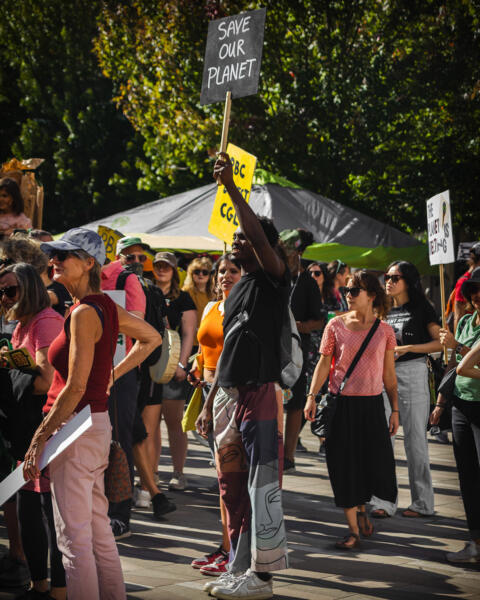
ROC: What is your call to action for march attendees?
AZ: The strike is calling for climate action now, and has three core demands that we’re putting forward to decision makers. We welcome all participation in the climate strike, which is happening in Vancouver on Friday, September 20 at 1pm. Join us!
We want our leaders to:
1) Stop new oil and gas projects today.
We can’t afford to keep pouring money into fossil fuel infrastructure. We need to rapidly decarbonize our economy and redirect our resources to invest in the clean energy transition. We need to listen to the scientists on this and rapidly adopt clean energy solutions. They exist, we just need to use them.
2) Keep fracked fossil gas out of new buildings.
Here in British Columbia, over 11 percent of B.C.’s total carbon emissions comes from heating our homes with dirty fracked gas. This number goes up to 40 percent in cities like Vancouver. Fossil fuel companies like FortisBC try to claim that fossil gas is “natural” or low carbon, but it’s not – it’s a fossil fuel that comes from the destructive practice of fracking, which destroys the land, poisons the water, and pollutes nearby communities with toxic chemicals like carcinogenic benzene.
Recent studies have shown that the fracked fossil gas found in Vancouver’s homes have 50 times more benzene than other cities in North America. Doctors say that benzene isn’t safe in any amount, so why is this dangerous threat to our health permitted? This is especially concerning since studies show that many gas appliances in our homes continue to leak toxic fumes, even after they’ve been turned off.
Not only is this toxic fracked gas exposing our loved ones to dangerous carcinogens, it’s fueling the climate crisis by leaking unburned methane into the atmosphere. From fracked wellheads and fracked gas pipelines to leaky gas appliances in our kitchens, fugitive methane emissions warm our planet 84 times faster than carbon dioxide.
Thankfully, we have easy alternatives to toxic fracked gas. Electric heat pumps not only warm our homes and drastically cut our energy bills, but they keep us cool in the summer during extreme heat events. Electric induction stovetops offer superior forms of cooking and are safe to use around children. We have solutions to power our homes with clean electricity, we just need our government to make the transition easy by ensuring that all new buildings come equipped with them. This is the easiest low hanging fruit they can take to lower our emissions quickly.
3) Protect people, nature, and Indigenous rights.
We have a government that consistently tramples over Indigenous Peoples’ rights whenever they get in the way of a corporation’s bottom line. This is not acceptable. The chronic placement of toxic industrial projects beside First Nations’ communities is a pernicious form of environmental racism.
Most fracking that takes place in northern B.C. disproportionately impacts nearby First Nations’ communities, exposing them to toxic chemicals that contaminate the water and the air. These communities have some of the highest rates of cancer and industry-related illnesses in B.C. because the province treats their land like a big sacrifice zone.
We call on our leaders to respect Indigenous Peoples’ rights by respecting their fundamental right to say no to projects that destroy their land.
Nowhere is this more critical than in the Gitxsan territory where we see the government forcing through another fracked gas pipeline without First Nations’ consent. The proposed Prince Rupert Gas Pipeline (PRGT) has been rejected by Gitxsan leaders who have set up a blockade to stop it. It’s incumbent on us to support them and to make sure that our government doesn’t trample over their rights in order to build more climate destroying pipelines.
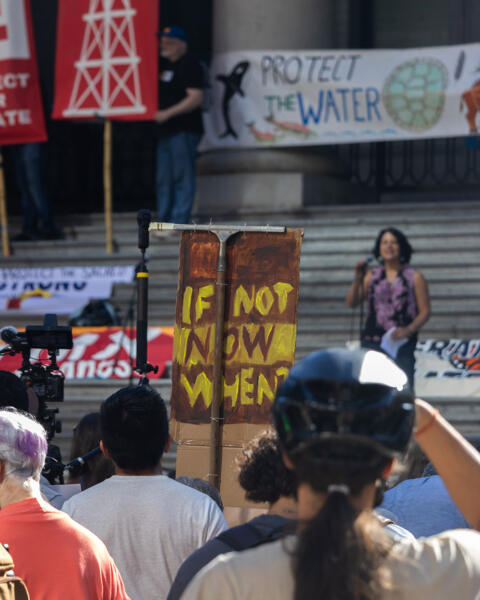
There are a number of upcoming opportunities we hope people will take to support our three core demands. We hope that people will support the Gitxsan Nation by calling for a new environmental assessment for PRGT and by showing up at upcoming solidarity actions. We also hope that people will show up where necessary to hold their elected leaders accountable for climate inaction. In the next couple of months, there will be an important vote held at the Vancouver city hall and we hope that everyone will show up to tell council that we will not let Ken Sim scrap Vancouver’s climate plan.
Our main call to action is to please show up, starting with the Climate Strike happening in Vancouver, BC on Friday, September 20. We need you to make the climate movement visible.
ROC: What are some of the biggest myths you hear about climate change?
AZ: That we can’t stop it and so why bother even trying. As a parent, nothing irks me more than this defeatist and false myth because not only is it not true, I simply don’t have the luxury to believe it. As a parent, I’m responsible for ensuring that my kids are safe and that includes doing everything I can to ensure that governments are making climate responsible decisions today that will impact them tomorrow. Not only is it still possible to limit global warming but we all have a responsibility to do so.
ROC: What is the preferred alternative to oil and gas projects?
AZ: There is so much untapped potential for renewable clean energy production in Canada. We need to invest in it and the good jobs it creates. We also need to reduce our emissions by investing in walkable communities, safe active transit corridors, and affordable (or better yet, free) public transit that gets us where we need to go on time. We can also build our homes better to run on energy efficient electric appliances like heat pumps. We have easy alternatives to fossil fuels, we just need to adopt them.
ROC: What is the significance of grassroots climate marches in the broader context of climate policy and activism?
AZ: It’s so important that the climate movement shows up to make visible the mass desire that we have for climate responsible policies.
ROC: How do you see the role of youth and student activism shaping the future of climate advocacy?
AZ: I keep seeing a meme that says, “Forget about the fact that this summer was the hottest one on record and instead start thinking of it as the coolest one you’ll have for the rest of your life.”
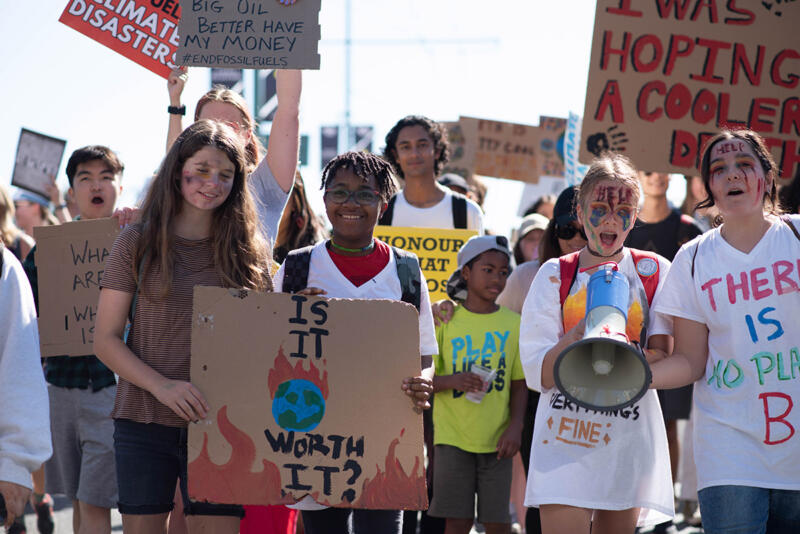
The youth are inheriting this world and this climate. Many of our children will never know what it was like before “smoke season” meant summer. Do you remember when summer was awesome? Before the heat domes and the choking smoke.
It makes sense that youth should have a leading role in determining what their future looks like. And participation in the climate strike is an opportunity to show advocacy for climate action, which is especially important for those who are too young to vote.
ROC: Can you suggest one action we can take to fight climate change today?
AZ: Vote for climate champions. And if they don’t exist, run for office. I’m never going to tell you to recycle when billionaires emit more carbon emissions from their summer yachts than entire towns do in a year. We need government led collective action that targets the real polluters and invests in the transition so that individuals aren’t hurt by it.
ROC: What are some organizations who offer good resources on climate change?
AZ: There are many amazing organizations out there doing great work, but I would be remiss not to mention my own! Dogwood has been on the forefront of fighting climate change for over twenty years in B.C. and our mission critical campaign, beyond gas, aims to decarbonize our economy by getting off of fossil gas.
ROC: Why is a family-friendly march your action of choice?
AZ: As a parent, I love it when I can bring my children with me to marches or protests because it teaches them an important lesson that they should never be afraid to fight for their rights or to stand up against injustice. In a world that is increasingly repressive, I want to teach them to fight against the encroachment of our freedoms in order to safeguard them. I hope I can be a living example of that for them.
ROC: What’s the chant we should be practicing for September 20th?
AZ: Here are two:
- “Hey hey ho ho, fossil fuels have got to go”
- “We Want Climate Action Now!”
Actions:
5 minutes: Check out 20 Environmental Instagram Accounts to Follow from earth.org https://earth.org/environmental-instagram-accounts-to-follow-now/
5 dollars: Make a donation to Dogwood or a climate focused organization in your area through https://www.usclimatenetwork.org/
5 days: Take part in climate strikes planned across the country: Fridays For Future Canada https://fridaysforfuture.ca/map-page/
